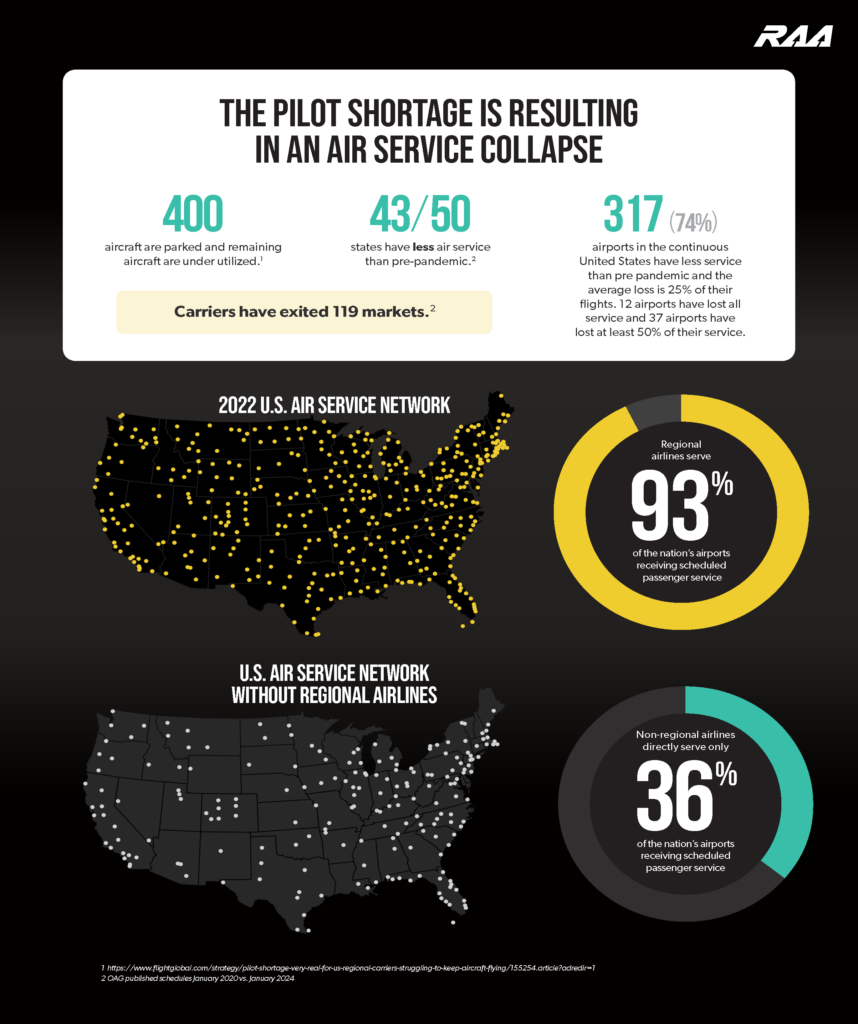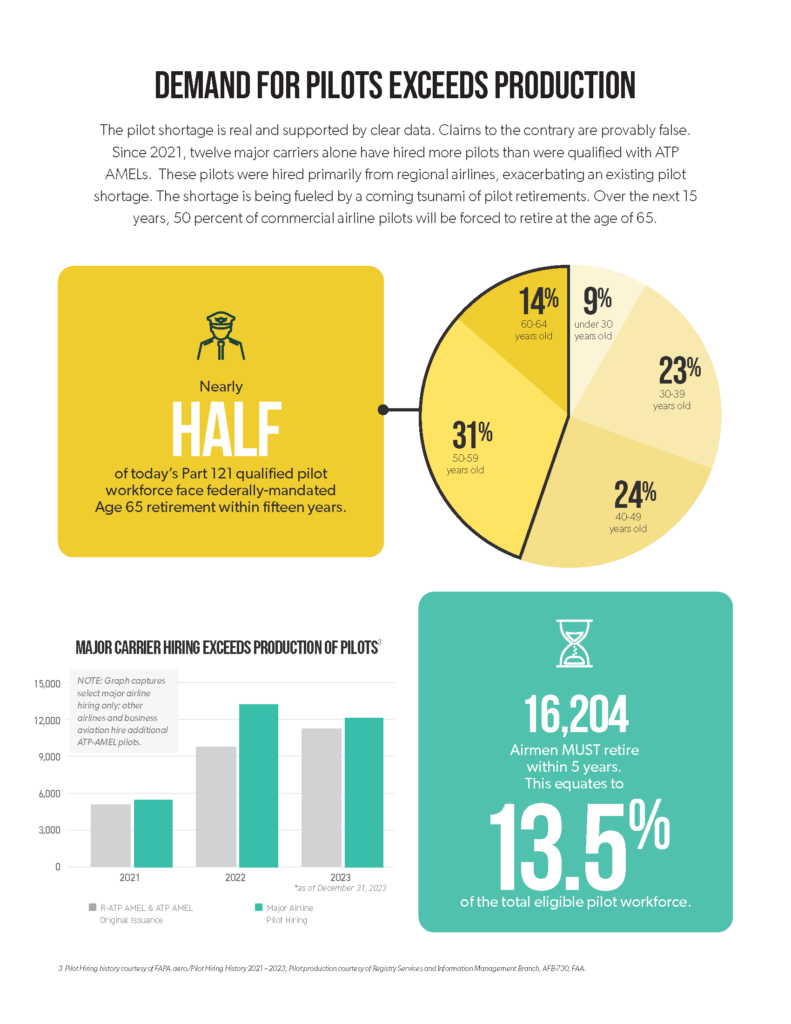Groundhog Day is Over, but ALPA Disinformation Plays on Repeat
Washington, DC, February 7, 2024. Media contact: media@raa.org
The Regional Airline Association (RAA), which represents 16 U.S. airlines that collectively offer the only source of air service to more than two-thirds of the nation’s airports, issued a statement in response to misinformation from the Air Line Pilots Association (ALPA) earlier this week. In its statement, ALPA accused “corporate special interests” of “misleading data to manufacture a crisis,” and claimed that “2023 pilot production exceeded airline demand.”
These accusations are demonstrably false. Verifiable data on FAA pilot certifications (11,225 pilots) and major airline hiring (12,193) shows a shortfall of 968 pilots in 2023. This follows an even more severe shortfall in 2022, where major airlines hired 13,128 pilots, while only 9,491 new pilots qualified. With a shortage of at least 4,605 pilots, 400 aircraft were parked and 317 U.S. airports lost an average of 25% of their flights, more than forty airports lost more than half of their flights, and 12 airports lost all air service.[1]
It is unacceptable that a well-resourced, large union with enormous political giving, representing some of the country’s highest earning professionals, would call smaller airlines and the communities they serve “special interests,” even as the union leverages safety regulations to narrow training access at the front end of the career and unscientific retirement caps that push pilots out on their 65th birthday. The common thread of these antithetical objectives is controlling the pilot supply to preserve their perceived wage bargaining advantage. Make no mistake: skilled pilots deserve to be—and are—well compensated. But it is wrong—and should be unacceptable to policymakers with safety oversight to tolerate—when a labor union uses safety regulations to promote industrial goals.
While ALPA plays flat Earth games with Congress and the public, real people and real communities have been hurt by the pilot shortage and its growing air service harms. Displaced passengers must drive for hours to reach the next nearest airport, on highways where more than 40,000 people lose their lives each year. Given the traffic fatality rate is 1.5 times higher in rural communities than in urban areas, this is a painful reminder of the ways transportation policy fails rural Americans. Doing the right thing should not be partisan, and pilot unions should not be afforded a veto over policies that impact real Americans. RAA urges policymakers to ignore false and defamatory comments and to do the right thing by eliminating ageist policies that push experienced pilots from the flight deck, while improving training access equity so more pilots can gain the training and experience needed to safely reconnect our American communities. To access more information on air service loss and sourcing for the facts in this statement, click here.
[1] OAG published schedules January 2020 vs. January 2024


The Regional Airline Association (RAA) provides a unified voice of advocacy for North American regional airlines aimed at promoting a safe, reliable, and strong regional airline industry. RAA serves as an important support network connecting regional airlines and industry business partners. Regional airlines operate 35% of U.S. scheduled passenger flights and provide the only source of scheduled air service to 64% of the nation’s airports. Regional airlines provide more than 70% of the air service in Alabama (72%), Alaska (88%), Arkansas (75%), Maine (72%), North Dakota (87%), South Dakota (75%), Vermont (77%), West Virginia (92%) and Wyoming (73%). Regional airlines provide more than half of the air service in Idaho (70%), Indiana (56%), Iowa (63%), Kansas (69%), Kentucky (58%), Mississippi (68%), Montana (65%), Nebraska (53%), New Hampshire (58%), and Rhode Island (58%).